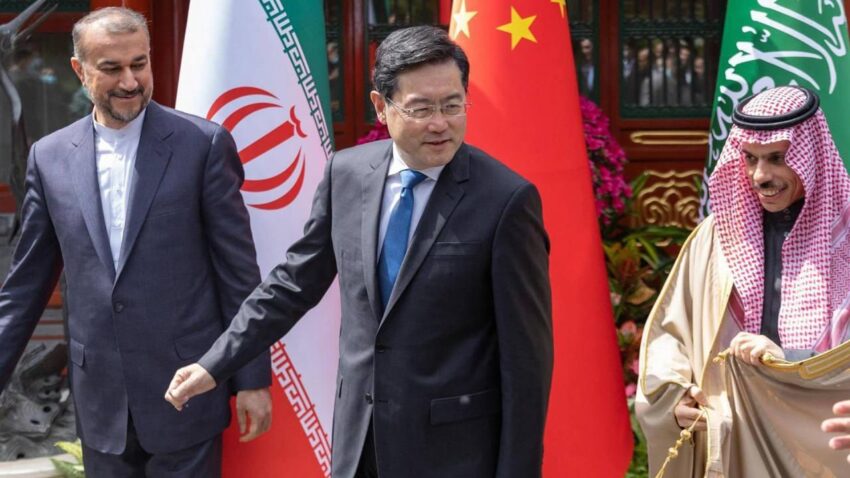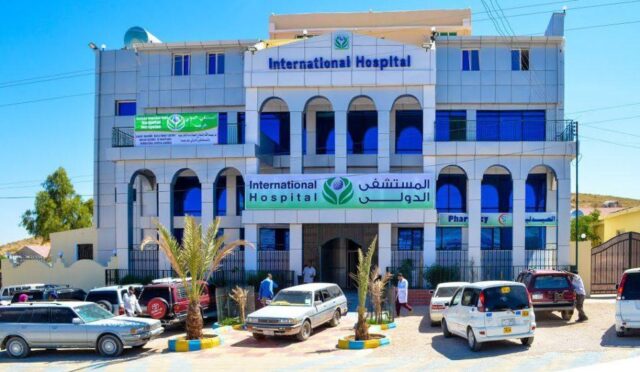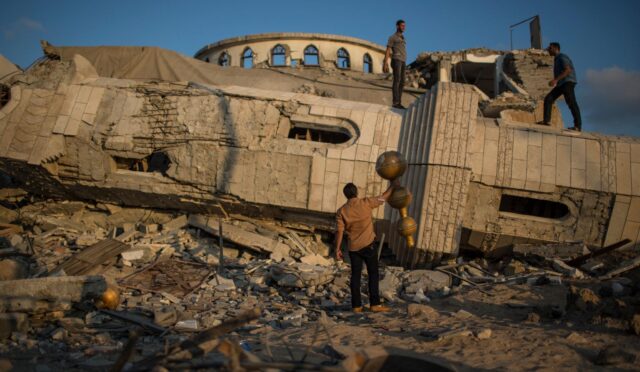Iran and Saudi Arabia Engage in Diplomatic Talks
Iran’s Foreign Minister Abbas Araghchi recently held discussions with Saudi Arabia’s de facto leader, Crown Prince Mohammed bin Salman. This meeting took place just two weeks after a ceasefire was declared between Iran and Israel, marking a significant moment in regional diplomacy. The Saudi foreign ministry reported that the talks were aimed at enhancing stability in a historically tumultuous relationship.
In a message shared on social media platform X, Crown Prince Mohammed expressed optimism that the recent truce would foster regional stability. He emphasized Saudi Arabia’s commitment to resolving disputes through dialogue and diplomatic channels. This approach reflects the kingdom’s efforts to strengthen its influence and role in the Middle East amidst ongoing tensions.
Iran’s Appreciation for Saudi Support
During the discussions, Minister Araghchi expressed gratitude to Riyadh for its condemnation of Israel’s military actions against Iran last month. These strikes, which began on June 13, were unprecedented and targeted numerous military and nuclear facilities in Iran, as well as civilian areas. Iran claims that the bombardments resulted in over 1,000 fatalities, including military officials and nuclear scientists.
In response to the Israeli assaults, Iran retaliated with drone and missile strikes that reportedly caused at least 28 deaths, according to Israeli sources. This cycle of violence underscores the fragile nature of stability in the region and the urgency for dialogue among its key players.
U.S. Airstrikes Complicate Relations
The situation is further complicated by the involvement of the United States, which has been engaged in negotiations regarding Iran’s nuclear program since April. On June 22, U.S. forces conducted their own airstrikes on Iranian nuclear facilities, escalating tensions even further. Although the discussions between Tehran and Washington have currently stalled, the ceasefire between Iran and Israel has remained in effect since June 24.
The divergent interests of the U.S., Iran, and Israel continue to create a challenging environment for diplomatic efforts aimed at securing long-term stability in the region. The commitment to dialogue, as advocated by Saudi Arabia, may prove essential in navigating these complexities.
Historical Rivalry and Recent Reconciliation
Iran, with its Shiite Muslim majority, has often found itself at odds with Sunni-majority Saudi Arabia in various regional conflicts, including those in Syria and Yemen. The two nations severed diplomatic ties in 2016 but made significant strides toward reconciliation in 2023, facilitated by intervention from China. This rapprochement is seen as a diplomatic milestone for Crown Prince Mohammed, who has emboldened efforts for a more conciliatory approach in regional relations.
Despite their historical rivalry, both countries recognize the need for cooperation to tackle common challenges. The recent talks mark a potential shift towards a more stable and peaceful coexistence in the region.
Responses to Israeli Actions
Following the Israeli airstrikes on Iran, Saudi Arabia denounced the attacks as violations of international law, labeling them as ‘aggressions’. Riyadh also expressed significant concern regarding the U.S. strikes on Iranian nuclear sites, reflecting a shared apprehension that these actions could exacerbate tensions.
The Saudi response indicates a desire to take a more assertive stance against Israeli actions while maintaining its role as a mediator in the region. By condemning the strikes, Saudi Arabia positions itself as a voice for regional stability and peace.
Positive Dialogue on Bilateral Relations
Iranian foreign ministry spokesman Esmaeil Baqaei commented that Foreign Minister Araghchi’s discussions with the Saudi leaders were ‘fruitful’. He highlighted that the conversations with Crown Prince Mohammed and other senior officials, including Foreign Minister Prince Faisal bin Farhan and Defense Minister Prince Khaled bin Salman, focused on enhancing bilateral relations and addressing regional developments.
These high-level talks suggest a willingness on both sides to engage constructively and explore avenues for cooperation beyond their differences. This emerging dialogue can potentially set the stage for improved relations, which are crucial for the stability of the wider Middle East.







